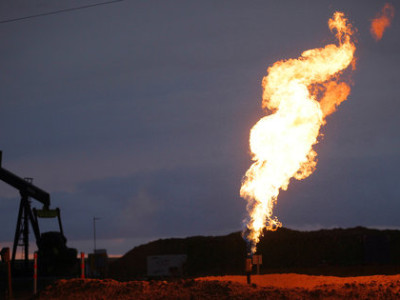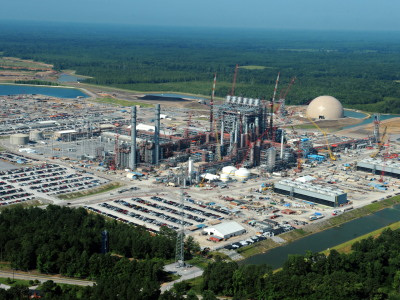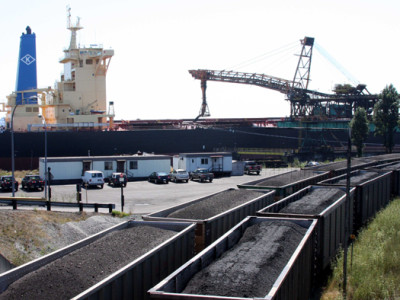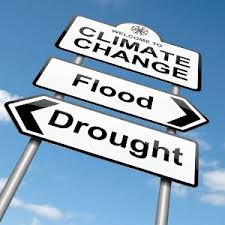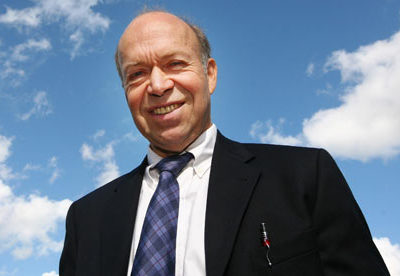Climate Change
Air quality and wildfire
We may need to burn more to get less smoke
One of the impacts of California’s difficult fire season has been air pollution. Fires produce smoke. Large wildfires produce a lot of smoke. And large wildfires in the southern Sierra Nevada produce smoke in the southern Central Valley – the part of the United States that already has some of the worst air quality in …
Continue reading “Air quality and wildfire”
CONTINUE READINGGaping Hole in EPA’s Methane Rules
Why don’t EPA’s proposed rules to reduce methane emissions apply to existing oil and gas facilities?
In August, EPA released proposed rules to reduce fugitive methane and VOC emissions from oil and gas operations. While this is a significant action in the fight against climate change, and much needed in light of the shale-driven national drilling renaissance, there is a gaping hole in the methane rules that has environmentalists worried — …
Continue reading “Gaping Hole in EPA’s Methane Rules”
CONTINUE READINGIs CCS the “best” system of emission reduction for coal-fired power plants?
Exploring Potential Challenges to EPA’s New Source Performance Standard: PART II
This post is the second in a mini-series (see first post) exploring likely legal challenges to the New Source Performance Standard (NSPS) for power-plant greenhouse gas emissions under Clean Air Act § 111(b), and how those challenges might affect the Clean Power Plan. In my first post on EPA’s New Source Performance Standard (NSPS) for …
Continue reading “Is CCS the “best” system of emission reduction for coal-fired power plants?”
CONTINUE READINGThe Future of Fire Policy
Climate change will require reconsideration of how we manage fire
It has been a brutal fire season here in California. It’s been brutal in part because of a historically bad drought. But unfortunately, the end of the drought (when it comes) will not be the end of our fire problems. Those fire problems are the result of long-term, human-caused trends that will only continue: climate …
Continue reading “The Future of Fire Policy”
CONTINUE READINGIs Carbon Capture & Sequestration (CCS) the Biggest Threat to the Clean Power Plan?
Exploring potential challenges to EPA’s New Source Performance Standard: PART I
This post is the first in a mini-series exploring likely legal challenges to EPA’s New Source Performance Standard (NSPS) for power-plant greenhouse gas emissions under Clean Air Act § 111(b), and how those challenges might affect the Clean Power Plan. I will leave detailed exploration of the Clean Power Plan for later posts, but suffice …
CONTINUE READINGLast Week in Climate Change
Is climate action finally starting to develop momentum?
There was some good news last week for those of us who worry about the future of the planet,. Both inside and outside of Congress, Pope Francis spoke about the need to protect the environment and address climate change. Some conservative Catholics are eager to dismiss this as simply another misguided opinion by a left-learning Pope. But …
Continue reading “Last Week in Climate Change”
CONTINUE READINGThe Coal Export Wars Reach Oakland
In seeking an alternative route to Asian markets, coal’s path from Utah to China via Oakland hits a snag
Expanded west coast infrastructure to support the export of western U.S. coal to Asian markets has long been part of the business plans for some of the nation’s largest coal producers. However, attempts by Powder River Basin coal interests to construct or expand coal export terminals in Washington and Oregon in recent years have been …
Continue reading “The Coal Export Wars Reach Oakland”
CONTINUE READINGThe Shadow Price of Carbon
Merging Cost-Benefit Analysis and Feasibility Analysis
The U.S. government has devoted a lot of time and effort to estimating the social cost of carbon. This is basically a standard exercise in cost-benefit analysis, following a familiar three-step process: 1. Impacts. Figure out the physical impacts of the emissions. This involves setting up some emissions scenarios and then running computer simulations to …
Continue reading “The Shadow Price of Carbon”
CONTINUE READINGThe Top Ten Reasons Trump Should Endorse a Carbon Tax
A bold move, if Trump is brave enough to go there.
Not that he’s asked for my advice, but here are ten powerful reasons why Donald Trump should endorse a carbon tax: 10. It would be completely inconsistent with his past positions. 9. It would shock the GOP establishment. 8. It would shock the media. 7. He’s already endorsed a tax increase for …
Continue reading “The Top Ten Reasons Trump Should Endorse a Carbon Tax”
CONTINUE READINGAnd a Child Shall Sue Them: Ambitious New Climate Lawsuit Filed Against Obama Administration
Will This Litigation Be More Successful Than Earlier, Related “Atmospheric Trust” Lawsuits?
Late last week, attorneys representing children from around the nation filed a provocative new lawsuit in federal court, arguing that the Obama Administration is violating the children’s constitutional rights by not taking far more dramatic steps to curb greenhouse gas emissions and address climate change concerns. The newly-filed complaint in the lawsuit, Juliana ex rel. …
CONTINUE READING



